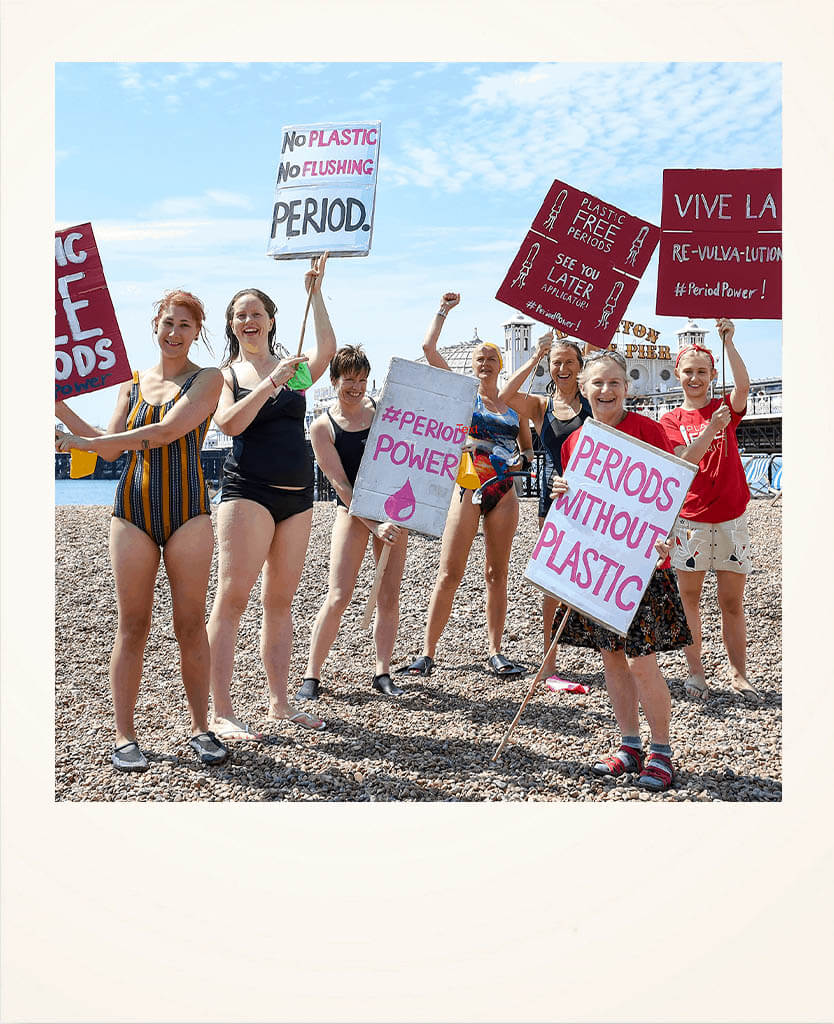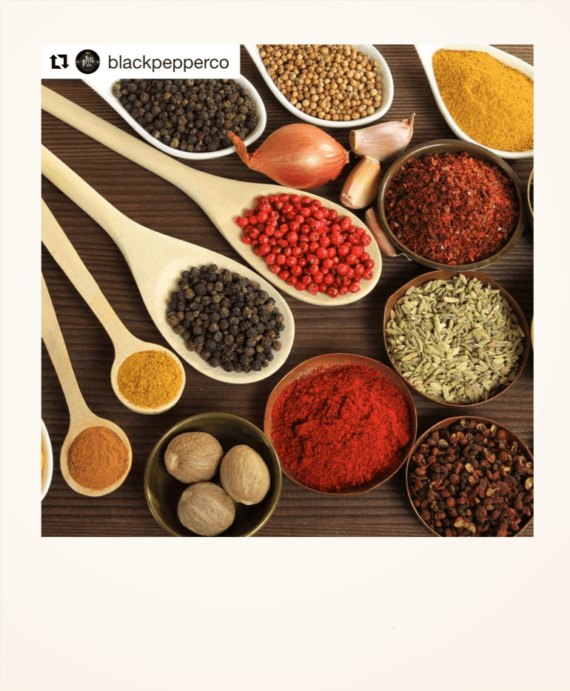Written by Elspeth Harry
In this time of uncertainty, we believe it's important to pause, reflect, and celebrate the positive work some people around the world are doing. 2019 was a good year for sustainability, so today we want to share some of our favorite projects carried out in the United Kingdom.
If you're interested in these types of projects, please let us know so we can continue highlighting more projects in different countries.
Plastic-free rules
The brand's products Natracare they are certainly there revolutionizing the feminine hygiene product industry : They are organic, plastic-free, and vegan. Despite the importance that has been given recently to reducing plastic consumption, It seems that intimate hygiene products do not fit into the same bag. But the reality is that every year they are used more than 45 billion menstrual hygiene products , and considering that pads are made of 90% plastic, It is not difficult to understand why these types of products are so damaging to marine and coastal life.
' Plastic is made from non-renewable fossil fuels, and plastic production generates worrying amounts of toxic pollution, which contributes to global warming. Any plastic that doesn't end up polluting landfills or the environment ends up being burned, releasing even more toxic pollutants ' (Natracare, 2020).
You may be wondering: How is it that personal hygiene products have gone so unnoticed in the great fight against plastic? Something that very few people know is that the manufacturers of these types of products They are under no obligation to list the ingredients they have used on their packaging. This means there's a world of plastics and chemicals behind hygiene products that we're completely unaware of. As a response to this problem, Natracare wants to give power back to women by providing them with all the information they need about what's behind these products.
According to the Marine Conservation Society – MCS (Marine Conservation Society), it is estimated that on average you can find 4.8 pieces of menstrual plastic in a 100-meter stretch of beach in the UK . Natracare joined forces with MCS to protest against plastic in feminine hygiene products on Brighton beach, an event that coincidentally coincided with #PlasticFreeJuly. This campaign was launched to support the fight against unnecessary plastics used in these types of products.

Without letting go of the hand of the MCS, Natracare also joined forces with Ella Daish (an activist for the cause of plastic-free rules) and with the non-profit organization City to Sea for urge the use of plastic-free menstrual products in schools. From Momoc, we want to congratulate all those brilliant women, companies, and individuals who continue to keep this campaign active to create an industry of menstrual products that do not harm the environment in this way. We encourage you to celebrate the #PowerOfYourRule (#PeriodPower) and support the ' Plastic Free Rules' campaign.
Plastic and Menstruation Statistics:
- 1 pack of conventional pads is equivalent to 4 plastic bags
- Millions of menstrual products are flushed down the toilet every day (1.4 million pads, 2.5 million tampons, and 700,000 panty liners).
- A woman buys between 5,000 and 15,000 pads/tampons throughout her life
- Synthetic fragrances, often used in sanitary pads, can be composed of up to 3,900 chemicals.
Let's talk about trees
The continued funding cuts to the city parks budget (this includes tree maintenance), has urged The Woodland Trust – TWT (The Forest Foundation) to take action. Its latest plan aims to create a greener city in Bristol , and By 2050, the city's tree canopy is expected to double . Experts suggest increasing the canopy to 30% (currently 15%). 'It would help combat climate change and air pollution, protect biodiversity, and promote a healthy lifestyle.' (Countryfile, 2019).

The Woodland Trust has called on all local businesses and citizens to support this project in different ways:
- Uploading a selfie with the hashtag #talkingtreebristol
- Assessing the condition of the trees
- Planting or sponsoring a tree
- By signing this Tree Charter (statute/charter for the protection of trees)
- Providing corporate sponsorship to trees
- (For companies) Encouraging your employees to participate in this campaign
' If we work together, we can protect our urban trees and create a legacy for future generations ' (Asher Craig, Councillor and Deputy Mayor)
Fortunately, many partners are joining this ambitious goal. He Forest of Avon Trust has planted more than a million trees thanks to projects like 'Woodland Wellbeing' (the well-being of forests) and Forest School (the forest school). The Bristol Tree Forum aims to protect trees and help manage those on public land. Your program 'One Tree Per Child' (one tree per child) also encourages plant trees in schools, parks, etc. All of these partners, including Bristol City Council itself, are working with the TWT to develop a tree strategy for Bristol with plans to expand throughout the rest of the UK.
We would like to thank TWT and its partners for planting over a million trees. Now more than ever, and in these uncertain times, We need to start realizing how much we've taken the wildlife around us for granted and how little we've stopped to think about how trees get to where they are and who's in charge of keeping them alive.
In Momoc We take the environment into account when designing our shoes. That's why we encourage you to join us and adopt a more conscious lifestyle, even if it's just starting with the shoes you walk this planet in.



